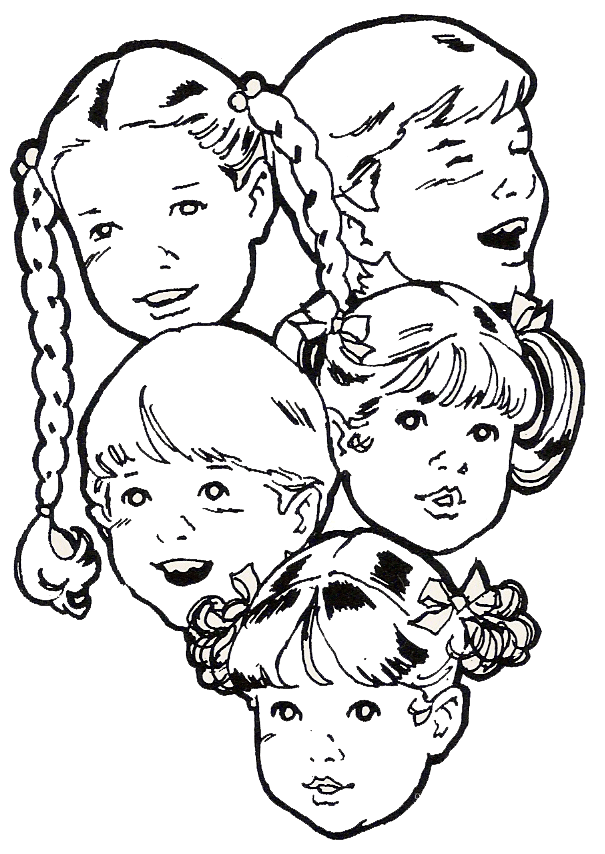What is the key concept of Montessori Education?
Montessori is a philosophy with the fundamental tenet that a child learns best within a social environment that supports each individual’s development. What makes Montessori education unique is the “whole child” approach. The primary goal of a Montessori program is to help each child reach full potential in all areas of life. Activities promote the development of cognitive skills, social skills, emotional growth, and physical coordination. The holistic curriculum under the guidance of a specially prepared teacher, provides children with the opportunity to enjoy the process of learning as they create their knowledge and develop their personalities.
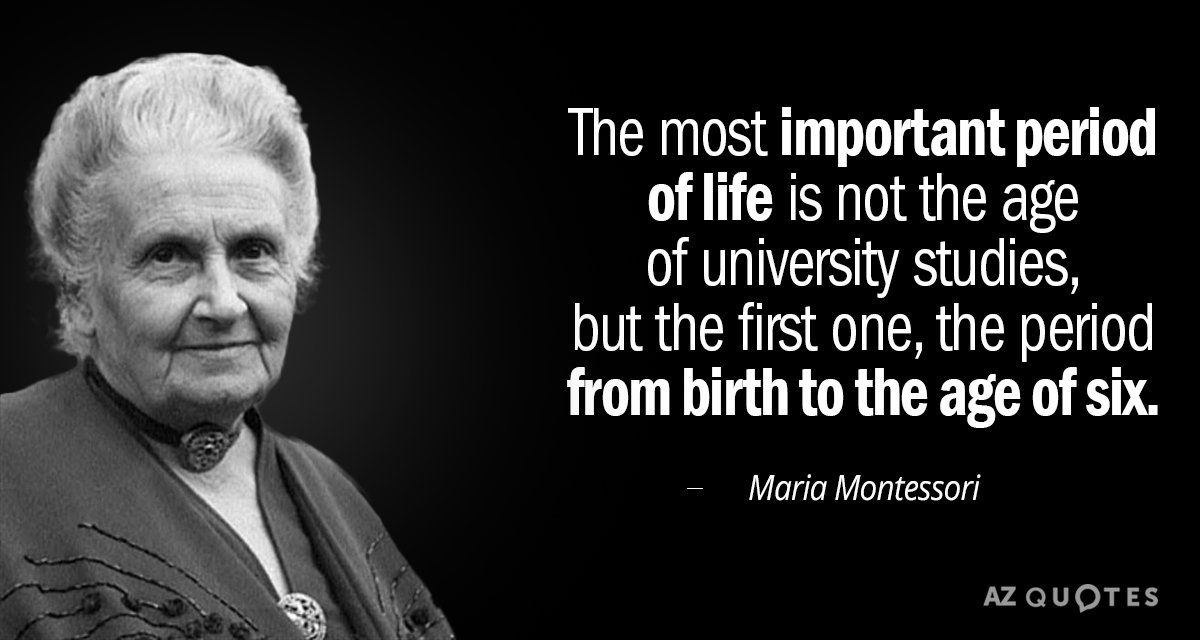
Why does a Montessori classroom have mixed-age groups?
Most educators agree that younger children learn well from older children. In a Montessori classroom, students are given the opportunity to teach and be taught by other students. Each student benefits from the example of the older students, and he or she will soon be the “leader” of the class, setting the example for others to follow. Older children learn, in part, by teaching the younger ones. A lesson is perfected when a student is able to give that lesson to a peer. Upon completion of the Montessori three year cycle, the child has experienced being the oldest, the middle child, and the youngest child.
How will my child later adjust to a traditional classroom?
Montessori students have a love of learning. This will transfer to any school setting that is stimulating and challenging. There will be some adjustments as they learn different expectations of a new classroom and get to know their new classmates; however, the desire to explore new academic avenues can be met within the traditional classroom if the teacher is enthusiastic and provides the opportunity for learning.
“Respect all the reasonable forms of activity in which the child engages and try to understand them.”
Maria Montessori
Why Montessori for the kindergarten year?
Below is an article originally appeared in Tomorrow’s Child magazine written by Tim Seldin with Dr. Elizabeth Coe.
Tim Seldon is the President of the Montessori Foundation and Chair of the International Montessori Council.
Elizabeth Coe is the Past President of the American Montessori Society and Director of the Houston Montessori Teacher Education Center in Houston, Texas.
Every year at reenrollment time and in thousands of Montessori schools all over North America, parents of four-almost-five-year-olds are trying to decide whether or not they should keep their sons and daughters in Montessori for kindergarten or send them off to the local schools.
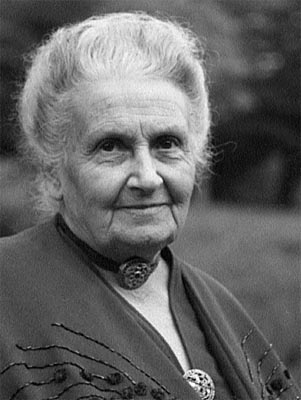
The advantages of using the local schools often seem obvious, while those of staying in Montessori are often not at all clear. When you can use the local schools for free, why would anyone want to invest thousands of dollars in another year’s tuition?
It is a fair question and it deserves a careful answer. Obviously there is no one right answer for every child. Often the decision depends on where each family places its priorities and how strongly parents sense that one school or another more closely fits in with their hopes and dreams for their children.
Naturally, to some degree the answer is also often connected to the question of family income as well, although we are often amazed at how often families with very modest means who place a high enough priority on the children’s education will scrape together the tuition needed to keep them in Montessori.
So here are a few answers to some of the questions parent often ask about Montessori for the kindergarten age child.
What would be the most important advantages of keeping my five-year-old in Montessori?
Montessori is an approach to working with children that is carefully based on what we’ve learned about children’s cognitive, neurological and emotional development from several decades of research. Although sometimes misunderstood, the Montessori approach has been acclaimed as the most developmentally appropriate model currently available by some of America’s top experts on early childhood and elementary education.
One important difference between what Montessori offers the five-year-old and what is offered by many of today’s kindergarten programs has to do with how it helps the young child to learn how to learn.
Over recent years educational research has increasingly shown that students in many schools don’t really understand most of what they are being taught. Howard Gardner, Harvard Psychologist and author of the best selling book The Unschooled Mind goes so far as to suggest that “Many schools have fallen into a pattern of giving kids exercises and drills that result in their getting answers on tests that look like understanding. Most students, from as young as those in kindergarten to students in some of the finest colleges in America do not understand what they’ve studied, in the most basic sense of the term. They lack the capacity to take knowledge learned in one setting and apply it appropriately in a different setting. Study after study has found that, by and large, even the best students in the best schools can’t do that.” (On Teaching For Understanding: A Conversation with Howard Gardner, by Ron Brandt, Educational Leadership Magazine, ASCD, 1994.)
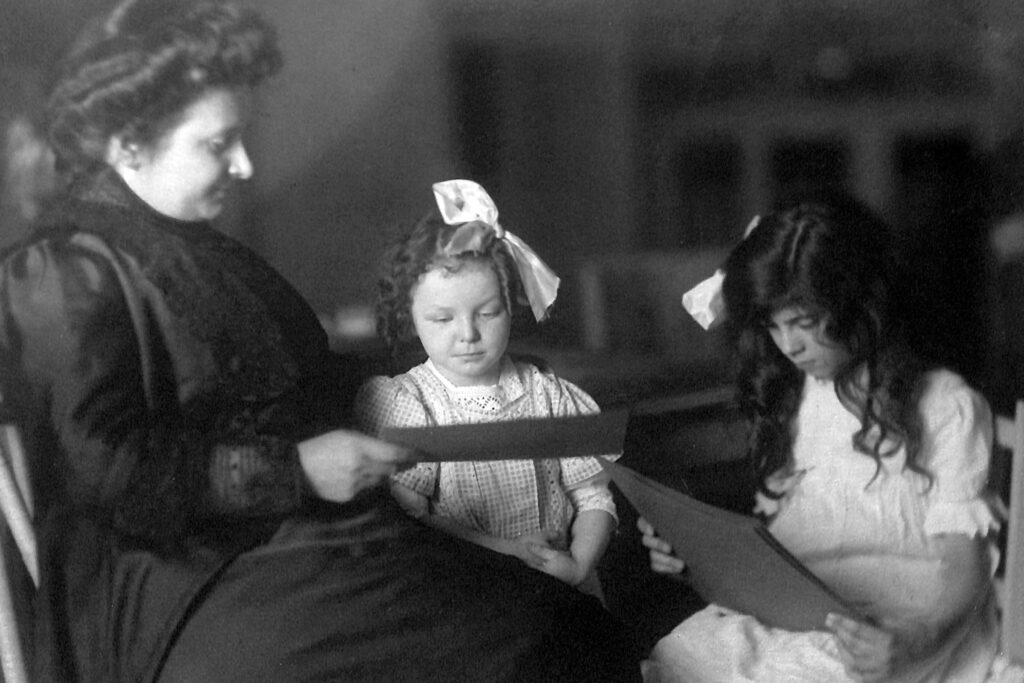
Montessori is focused on teaching for understanding. In a primary classroom, three and four-year-olds receive the benefit of two years of sensorial preparation for academic skills by working with the concrete Montessori learning materials. This concrete sensorial experience gradually allows the child to form a mental picture of concepts like how big is a thousand, how many hundreds make up a thousand, and what is really going on when we borrow or carry numbers in mathematical operations.
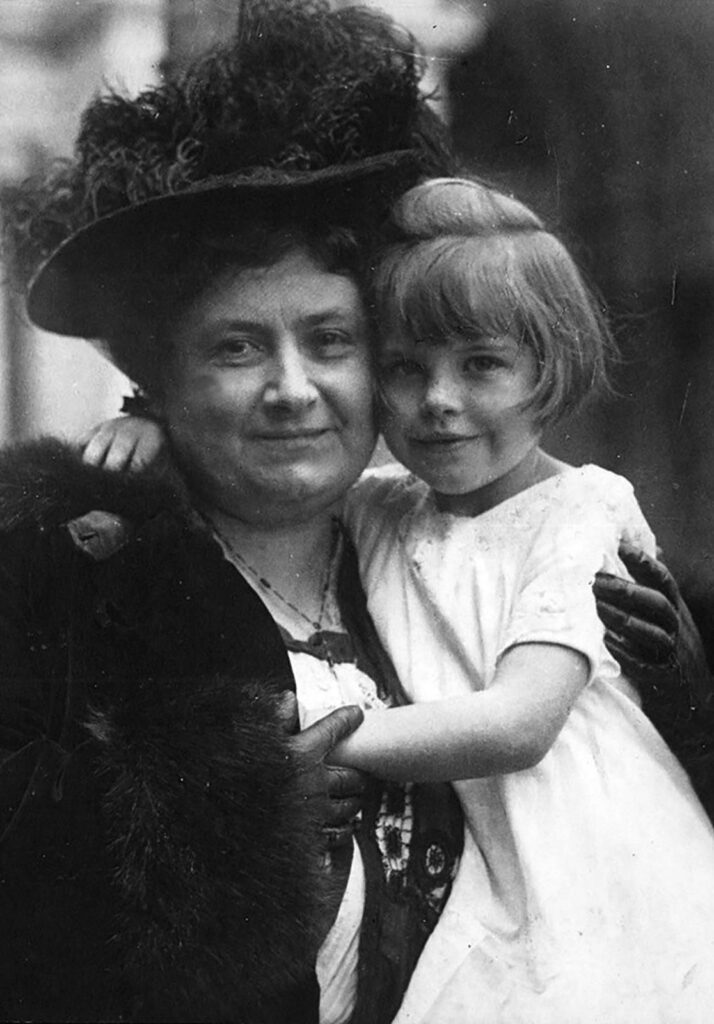
The value of the sensorial experiences that the younger children have had in Montessori has often been under-estimated by both parents and educators. Research is very clear that young children learn by observing and manipulating their environment, not through textbooks and workbook exercises. The Montessori materials give the child concrete sensorial impression of abstract concepts, such as long division, that become the foundation for a lifetime understanding.
Because Montessori teachers are well trained in child development, they normally know how to present information in developmentally appropriate ways.
In many, many American schools, children do exercises and fill in workbook pages with little understanding. There is a great deal of rote learning. Superficially, it may seem that these children are learning the material. However, all too often a few months down the road little o what they “learned” will be retained and it will be rare for the children to be able to use their knowledge and skills in new situations. Learning to be organized and learning to be focused is as important as any academic work. Doing worksheets quickly can be impressive to parents, but there is rarely any deep learning going on. More and more educational researchers are beginning to focus on whether students, whether young or adult, really understand or have dimply memorized correct answers.
In a nutshell, what would be the most important short-term disadvantage of sending my five-year-old to the local school?
When a child transfers from Montessori to a new kindergarten, she spends the first few months adjusting too a new class, a new teacher, and a whole new system with different expectations. This, along with the fact that most kindergartens have a much lower set of expectations for five-year-olds than most Montessori programs, severely cuts into the learning that could occur during this crucial year of their lives.
In a few cases, kindergarten Montessori children may not look as if they are not as advanced as a child in a very academically accelerated program, but what they do know they usually know very well. Their understanding of the decimal system, place value, mathematical operations, and similar information is usually very sound. With reinforcement as they grow older, it becomes internalized and a permanent part of who they are. When they leave Montessori before they have had the time to internalize these early concrete experiences, their early learning often evaporates because it is neither reinforced nor commonly understood.
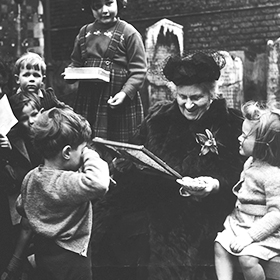
In a class with such a wide age range of children, won’t my five-year-old spend the year taking care of younger children instead of doing his or her own work?
The five year olds in Montessori classes often help the younger children with their work, actually teaching lessons or correcting errors.
Anyone who has ever had to teach a skill to someone else may recall that the very process of explaining a new concept or helping someone practice a new skill leads the teacher to learn as much, if not more, than the pupil. This is supported by research. When one child tutors another, the tutor normally learns more from the experience than the person being tutored. Experiences that facilitate development of independence and autonomy are often very limited in traditional schools.
Isn’t it better for kids to go to school with the children from their neighborhood?
Once upon a time people bought a home and raised their family in the same neighborhood. There was a real sense of community. Today, the average family will move two or three times before their children go off to college. Many public schools expect a turnover of more than 20% of their population in a year as families move in and out of the area. The relationships that once bound families living in the same neighborhood together into a community have grown weak in many parts of the country. In many Montessori schools, families who live in different neighborhoods but who share similar values have come together to create and enjoy the extended community of their school. Children growing up in Montessori schools over the last fifty years often speak of how closely knit their friendships were with their school mates and their families.
Since most children will eventually have to go to the neighborhood schools, wouldn’t it be better for them to make the transition in kindergarten rather than in first grade?
The American Montessori Society tells of one father who wrote, “We considered the school years ahead. We realized a child usually does his best if he has good learning habits, a sound basis in numbers and math, and the ability to read. We realized that he has had an excellent two-year start in his Montessori school. If he were to transfer now to kindergarten, he would probably go no farther than he is now, whereas if he stays in Montessori, he will reap the benefits of his past work under the enthusiastic guidance of teachers who will share his joy in learning.”
Many families are aware that by the end of the kindergarten year, Montessori students will often have developed academic skills that may be beyond those of children enrolled in most American kindergarten programs. However, parents should remember that academic progress is not our ultimate goal. Our real hope is that the children will have an incredible sense of self-confidence, enthusiasm for learning, and will feel closely bonded to their teachers and classmates. We want much more than competency in the basic skills; we want them to honestly enjoy school and feel good about themselves as students.

Once children have developed a high degree of self-confidence, independence, and enthusiasm for the learning process, they normally can adapt to all sorts of new situations. While there is wonderful and exciting reasoning to carefully consider keeping a child in Montessori through elementary school and beyond, by the time they are first grade they will typically be able to go off to their new school with not only a vibrant curiosity and excitement about making new friends and learning new things.
If I keep my child in Montessori for kindergarten, won’t he/she be bored in a traditional first grade program?
Montessori children by the end of age five are normally curious, self-confident learners who look forward to going to school. They are normally engaged, enthusiastic learners who honestly want to learn and ask excellent questions.
What teacher wouldn’t give her left arm for a room filled with children like that? well, truthfully over the years we’ve found some who consider these children “disruptive.” Disruptive, you ask. A polite, independent Montessori child, disruptive?
Well, first off, let’s remember that Montessori children are real human beings, and not all children who attended Montessori fit the idealized description. However, enough do that the generalization is often fairly accurate.
Montessori children by age six have spent three or four years in a school where they were treated with honesty and respect. While there were clear expectations and ground rules, within that framework their opinion and questions were taken quite seriously. Unfortunately, there are still some teachers and schools where children who ask questions are seen as challenging authority. You can imagine an independent Montessori child asking his new teacher, But why do I have to ask each time I need to use the bathroom? or Why do I have to stop my work right now?
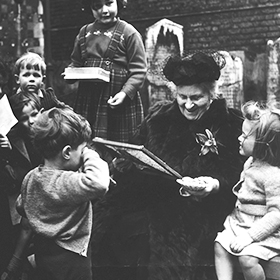
So the honest answer is that it depends on the teacher and school.
From an academic viewpoint, Montessori children will generally be doing very well by the end of kindergarten, although, once again, that is not our ultimate objective. The program offers them enriched lessons in math, reading, language, and a wide range of lessons in science, geography, and other cultural areas. If they are ready, they will normally develop excellent skills and become quite “culturally literate.”
When one of these children enters a traditional first grade, they may have already mastered the skills that their new school considered first grade curriculum. Some Montessori children are still more advanced. Once upon a time in America, elementary schools had only one course of study for every child at each grade level, and the only option for children who were academically gifted was to skip them ahead one or two grade levels. This created all sorts of resentments, jealousies among students, and social stresses on children who socially and physically still belonged with their own age group. However, as Dr. Montessori’s educational strategies have been incorporated to a greater or lesser extent by more and more school systems, it is becoming more common to find elementary schools that are willing and able to adapt their curriculum to meet the needs of individual students who are ready for accelerated work.
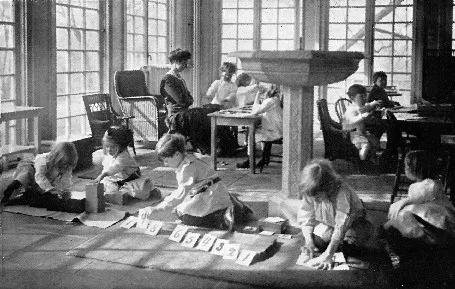
The key concept in Montessori is the child’s interest and readiness for advanced work. If a child is not developmentally ready to go on, she is not left behind or made to feel like a failure. Our goal is not to ensure that our children develop at a predetermined rate, but to ensure that whatever they do, they do well. Most Montessori children master a tremendous amount of information and skills. Even in the rare case where one of our children may not have made as much progress as we would have wished, he will usually be moving along steadily at his own pace and will feel good about himself as a learner.
“Let the children be free; encourage them; let them run outside when it is raining; let them remove their shoes when they find a puddle of water, and when the grass of the meadow is wet with dew, let them run on it and trample it with their bare feet; let them rest peacefully when a tree invites them to sleep beneath its shade; let them shout and laugh when the sun wakes them in the morning.”
Dr. Maria Montessori
